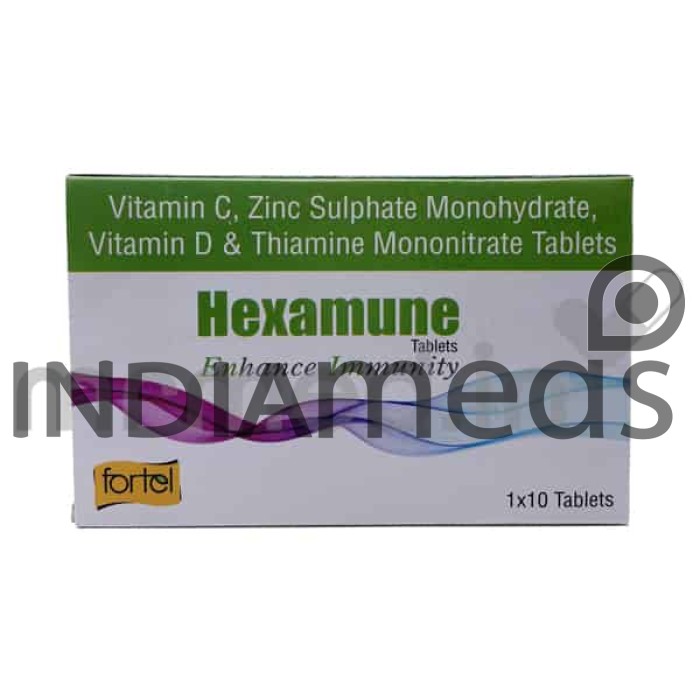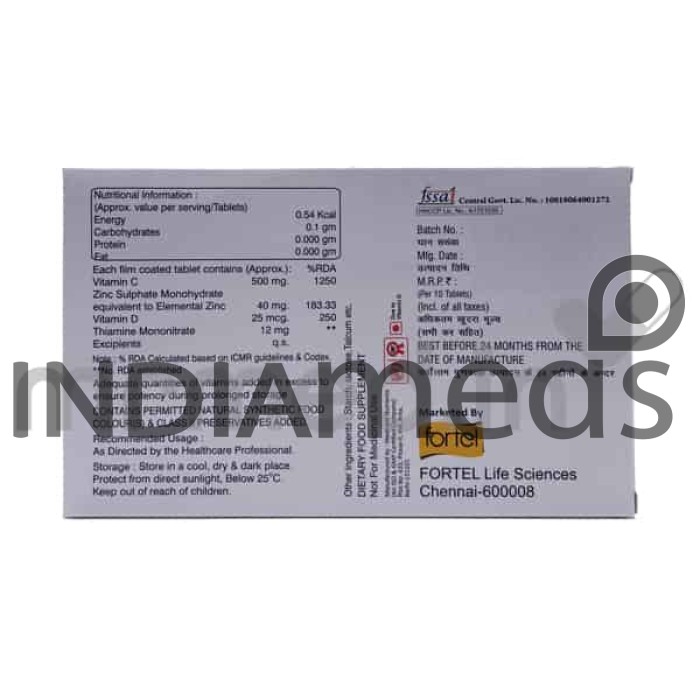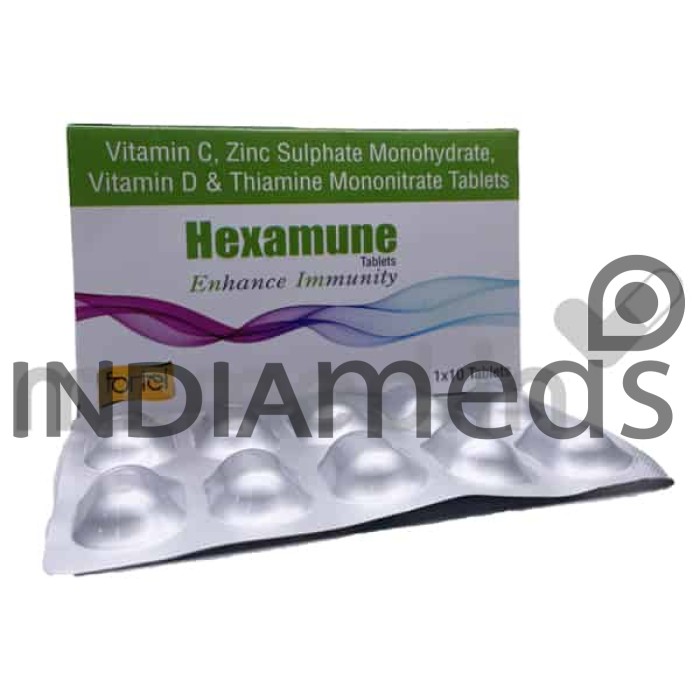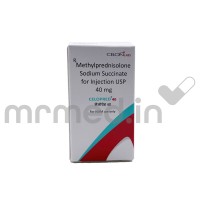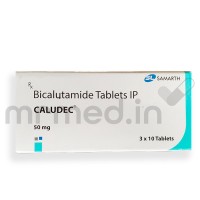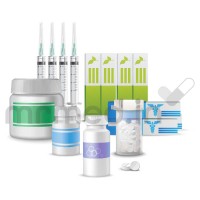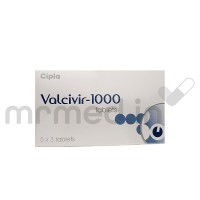Hexamune Tablet contains active components called Zinc sulfate monohydrate and Vitamin C. This medication treats or prevents vitamin and mineral deficiencies in adults and children. It also improves immune function and speeds up recovery from various illnesses. Some specific uses of this medication include iron deficiency anemia and vitamin C and D deficiency. It is also used in zinc and calcium deficiency. It may also be used to treat the common cold, flu, and other viral and bacterial infections. It helps in wound healing, burns, fractures, and malabsorption syndromes. This medication is also used in cases of chronic diseases such as cancer, HIV, and kidney disease. Hexamune Tablet should be avoided if you are allergic to any of the ingredients in this medication. It should not avoided in conditions like hypervitaminosis A or D (too much vitamin A or D), hypercalcemia (too much calcium in the blood), iron overload, and hemolytic anemia (a type of anemia in which red blood cells are destroyed). Do not use this medication in cases of kidney failure and severe liver disease. Older adults need to talk to their doctor before taking Hexamune tablet , especially if they have any underlying medical conditions or are taking any other medications. Children should not take more than the recommended dosage of this medication, as this could lead to overdose.
Therapeutic Effects of Hexamune Tablet
Pregnancy
If you are pregnant or trying to become pregnant, it is important to talk to your doctor before taking Hexamune tablets.
Breast Feeding
It is important to talk to your doctor before taking Hexamune tablet if you are breastfeeding.
Lungs
If you have lung diseases, it is important to talk to your doctor before taking Hexamune tablets.
Liver
People with liver disease should consult your doctor before taking Hexamune tablet .
Alcohol
It is not safe to drink alcohol while taking Hexamune tablet . Alcohol can interact with some of the ingredients in this medication and cause side effects.
Driving
Hexamune tablet does not cause any known side effects that would impair driving ability. If you experience any side effects, consult your healthcare provider before taking it while driving.
Serious:
- Allergic reactions
- Kidney stones
- Hypervitaminosis A or D (too much vitamin A or D)
- Hypercalcemia (too much calcium in the blood)
- Iron overload
- Hemolytic anemia
Common:
- Upset stomach
- Diarrhea
- Constipation
- Nausea
- Vomiting
- Headache
- Dizziness
- Rash
Hexamune tablet is safe for most adults and children to take. However, it is important to talk to your doctor before taking it, if you have any underlying medical conditions, are pregnant, breastfeeding, or taking any other medications.
The dosage of Hexamune tablet will vary depending on the age and individual needs of the patient. It is important to follow the dosage instructions on the label or as directed by your doctor.
The most common side effects of Hexamune tablets are upset stomach, diarrhea, and constipation. These side effects are usually mild and go away on their own within a few days. If you experience any severe side effects, please stop taking this medication and see a doctor immediately.
Yes, you can take Hexamune tablets if you have diabetes. However, it is important to talk to your doctor before taking this medication, especially if you are taking any other medications for your diabetes.
There are no specific foods or drinks that you need to avoid when taking Hexamune tablet . However, it is generally a good idea to eat a healthy diet and drink plenty of fluids.
Molecule name: Zinc sulfate monohydrate ,Vitamin C | Therapeutic class: General health supplement |
Pharmacological class: Multivitamin and mineral supplement | Indications: 1.Common cold 2. Flu 3. Viral infections 4. Bacterial infections 5. Wound healing 6. Burns 7. Fractures 8. Iron deficiency anemia 9. Vitamin C deficiency 10. Vitamin D deficiency 11. Zinc deficiency 12. Calcium deficiency |


